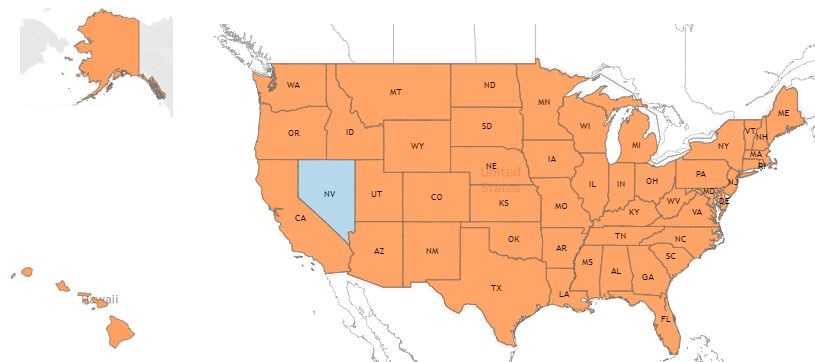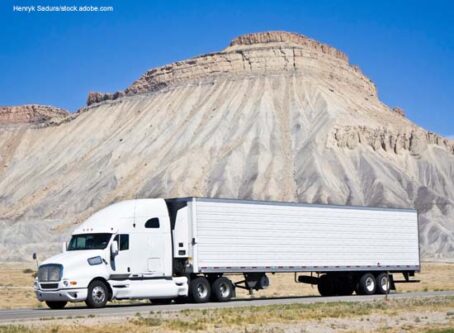April NAFTA experiences largest decrease on record
The U.S. Department of Transportation’s Bureau of Transportation Statistics reports that in April trucks moved more than 66% of April NAFTA freight – with trains, planes, ships and pipelines picking up the rest. Transborder freight experienced its largest monthly and yearly decrease amid the COVID-19 pandemic.
The value of freight hauled across the borders decreased by more than 41% compared with March, when NAFTA freight went up by 3% compared with the previous month. Valued at more than $58 billion, total April NAFTA freight is the lowest it has been since May 2009.
April NAFTA marks the largest drop in transborder freight by value since records began.
Compared to April 2019, freight was down more than 44% after an 8% year-to-year decrease in March and a 2% increase in February.
In 2019, NAFTA freight decreased by 0.8% compared to the previous year, with 63% of that freight carried by trucks. This year’s historic decrease in April sets 2020 NAFTA behind compared to this time last year.

Trucks carried nearly $39 billion of the more than $58 billion of cross-border imports and exports in April, down 38.5% from March and a decrease of nearly 41% compared with April 2019.
Month-to-month, Canada truck freight decreased by more than 36%, whereas Mexico freight dropped by more than 40%. Top truck commodities were computers and parts, motor vehicles and parts, electrical machinery, plastics, and measuring/testing instruments.
April NAFTA freight totaled $58.1 billion, down by nearly $41 billion from the previous month and a decrease of more than $46 billion from April 2019.
Rail freight accounted for the largest decrease at 60% after increasing by 4% in March. Airfreight experienced the smallest decrease at 29% after experiencing the largest increase in March at 14%.
Nearly 60% of U.S.-Canada April NAFTA freight was moved by trucks, followed by rail at more than 12%. Of the more than $28 billion of freight moving in and out of Mexico, trucks carried more than 73% of the loads.









